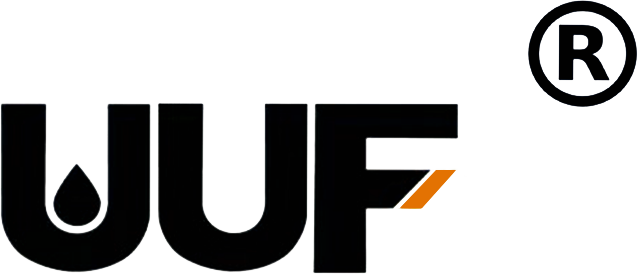Understanding the Importance of Proper TC Oil Seal Maintenance
Time:
2025-07-28
Understanding the Importance of Proper TC Oil Seal Maintenance Table of Contents Introduction to TC Oil Seals What Are TC Oil Seals? The Role of TC Oil Seals in Industrial Applications The Importance of Proper Maintenance Common Causes of TC Oil Seal Failure Best Practices for TC Oil Seal Maintenance Signs of Wear and Tear on TC Oil Seals Conclusion Frequently
Understanding the Importance of Proper TC Oil Seal Maintenance
Table of Contents
- Introduction to TC Oil Seals
- What Are TC Oil Seals?
- The Role of TC Oil Seals in Industrial Applications
- The Importance of Proper Maintenance
- Common Causes of TC Oil Seal Failure
- Best Practices for TC Oil Seal Maintenance
- Signs of Wear and Tear on TC Oil Seals
- Conclusion
- Frequently Asked Questions
Introduction to TC Oil Seals
TC oil seals, often found in various types of machinery, serve a pivotal function in maintaining the integrity of fluids within mechanical systems. These seals are constructed to prevent leakage of lubricants and other fluids, ensuring that the machinery operates efficiently. Proper maintenance of TC oil seals not only promotes productivity but also extends the lifespan of the machinery.
What Are TC Oil Seals?
TC oil seals, also known as double lip oil seals, are designed with two sealing lips that provide a robust barrier against contaminants. The primary function is to retain oil while preventing the ingress of dirt and moisture. The materials used in TC oil seals, typically rubber or synthetic compounds, are engineered to withstand varying temperatures and pressures, making them ideal for a multitude of applications in industrial settings.
The Role of TC Oil Seals in Industrial Applications
In industrial applications, TC oil seals are integral to the smooth operation of machinery. They play a crucial role in:
- **Protecting Bearings:** TC oil seals help in maintaining the lubrication of bearings, which are essential for the movement of rotating components.
- **Preventing Contamination:** By sealing off critical parts of machinery, they prevent dirt and debris from entering, thereby reducing the risk of equipment failure.
- **Enhancing Equipment Longevity:** Properly maintained TC oil seals contribute to the overall longevity of equipment, minimizing maintenance costs and downtime.
The Importance of Proper Maintenance
The significance of proper TC oil seal maintenance cannot be overstated. Regular maintenance ensures that these seals perform effectively, which in turn leads to:
- **Reduced Operational Costs:** Well-maintained seals reduce the need for costly repairs and replacements, ultimately leading to lower operational costs.
- **Increased Efficiency:** TC oil seals that are in good condition contribute to the overall efficiency of machinery, leading to improved productivity.
- **Lower Risk of Failures:** Proper maintenance minimizes the likelihood of premature seal failure, which can cause catastrophic machinery breakdowns.
Common Causes of TC Oil Seal Failure
Understanding the common causes of TC oil seal failure is vital for effective maintenance. Some prevalent issues include:
- **Improper Installation:** Incorrect installation can lead to misalignment, which causes premature wear and tear.
- **Contamination:** Exposure to dirt, moisture, and other contaminants can degrade the seal material, leading to leaks.
- **Temperature Extremes:** High or low temperatures can affect the integrity of the sealing material, resulting in reduced performance.
- **Mechanical Wear:** Over time, seals can wear down due to friction with rotating components, necessitating timely replacement.
Best Practices for TC Oil Seal Maintenance
To ensure the longevity and effectiveness of TC oil seals, implementing best practices is essential. Here are some key maintenance strategies:
Regular Inspections
Conducting routine inspections allows for early detection of wear and tear. Check for signs of leakage, cracking, or deformation in the seal material.
Correct Installation Techniques
Follow manufacturer guidelines for installation to ensure that seals are fitted correctly. Proper alignment and use of the right tools can prevent issues related to improper installation.
Use Quality Replacement Parts
When replacing TC oil seals, choose high-quality components that meet industry standards. Quality seals are more likely to withstand the rigors of industrial applications.
Lubrication Practices
Ensure that seals are adequately lubricated during installation. This helps to prevent excessive friction and wear, extending the seal's lifespan.
Environmental Considerations
Keep the operating environment clean and free from contaminants. Implementing protective measures can significantly reduce the risk of seal degradation due to environmental factors.
Signs of Wear and Tear on TC Oil Seals
Identifying signs of wear and tear on TC oil seals can help in taking timely action to prevent failure. Look out for:
- **Visible Cracks or Tears:** Any physical damage to the seal material indicates that it may need to be replaced.
- **Fluid Leaks:** Any signs of fluid leakage around the seal area are a clear indicator that the seal's integrity has been compromised.
- **Unusual Noises:** Grinding or whining noises from machinery may suggest that bearings are not adequately lubricated due to a failing seal.
Conclusion
In conclusion, the importance of proper TC oil seal maintenance cannot be overlooked in industrial operations. By understanding the role of these seals, recognizing the signs of wear, and implementing best maintenance practices, we can significantly enhance the longevity and efficiency of industrial machinery. Proactive maintenance strategies lead not only to reduced operational costs but also to a more reliable and productive work environment.
Frequently Asked Questions
1. How often should TC oil seals be inspected?
Regular inspections should be conducted every three to six months, depending on the operating conditions and frequency of use.
2. What are the signs that a TC oil seal needs replacement?
Signs include visible cracks, fluid leakage, and unusual noises from the machinery.
3. Can TC oil seals be reused after removal?
It is not advisable to reuse TC oil seals, as they can lose their elasticity and sealing capabilities once removed.
4. What materials are TC oil seals made of?
TC oil seals are typically made from rubber or synthetic materials that are resistant to oil and temperature variations.
5. What is the best way to install a TC oil seal?
Follow the manufacturer's installation guidelines, ensuring proper alignment and lubrication to prevent premature failure.
Keyword:
TC oil seal


















